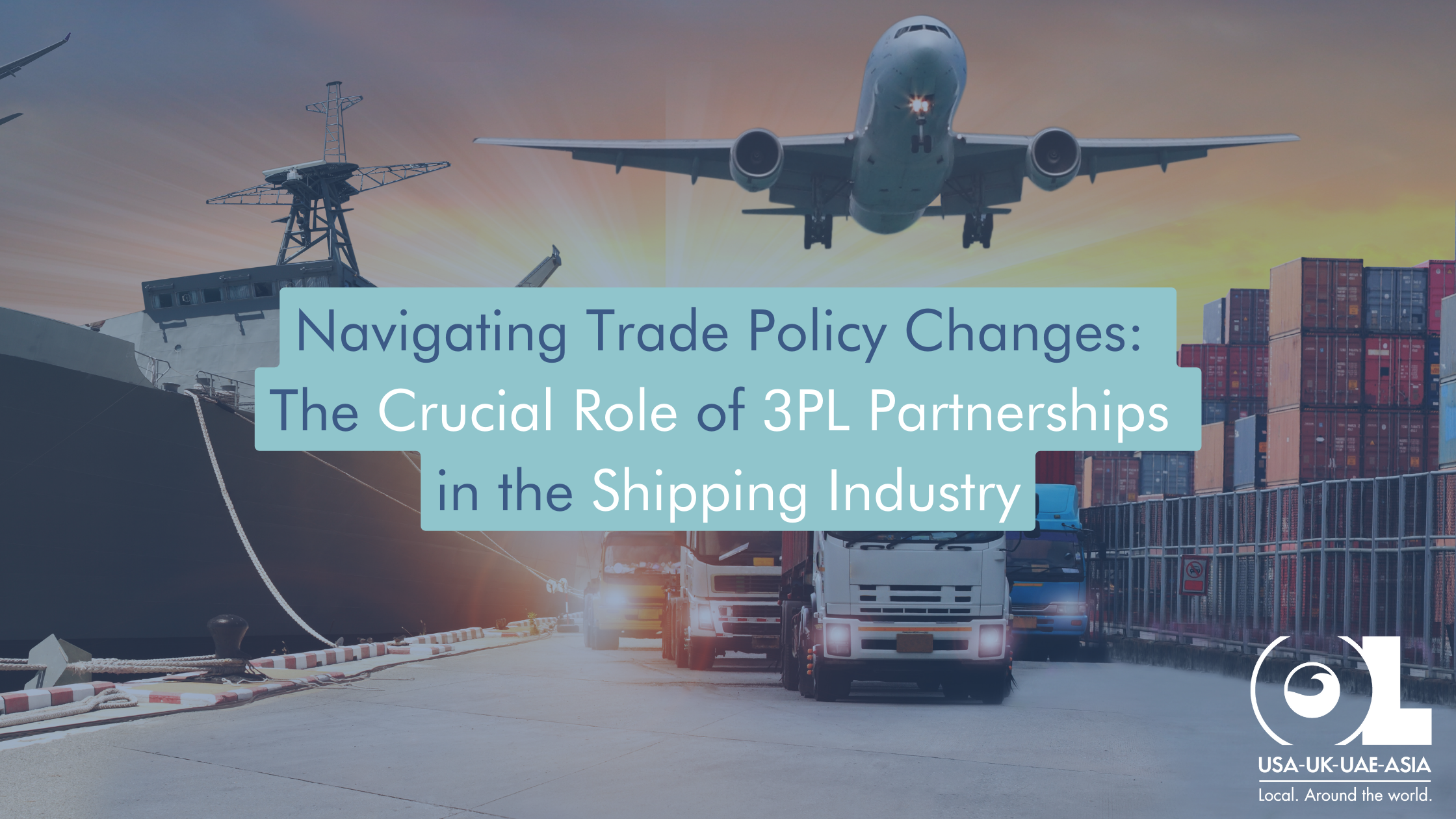International trade operates within a complex web of policies and regulations, with trade policies significantly shaping the shipping industry. Changes in these policies can disrupt supply chains, increase costs, and impact shipping routes. In such a dynamic environment, businesses must stay informed and adapt swiftly. This is where partnering with a third-party logistics (3PL) provider becomes invaluable. In this blog post, we will explore the profound impact of trade policies on the shipping industry and highlight the benefits of collaborating with a trusted 3PL partner to navigate these complex regulatory changes effectively.
The Impact of Trade Policies on the Shipping Industry
Trade policies, established by governments, serve as the framework for cross-border trade activities, covering areas such as tariffs, customs regulations, trade agreements, and sanctions. Alterations in trade policies can disrupt established supply chains, increase transportation costs, and complicate customs procedures for shippers. Additionally, these policies can influence shipping routes, requiring shipping companies to find alternative solutions to navigate around restrictions and sanctions. The shipping industry, in recent years, has experienced frequent and unpredictable trade policy changes due to protectionist sentiments and geopolitical tensions.
The impact of frequent and unpredictable changes like these on the shipping industry has highlighted the need for businesses to remain vigilant and adaptable. As governments continue to prioritize their national interests and navigate complex geopolitical dynamics, trade policies will likely continue to evolve. This underscores the importance of maintaining a proactive approach and staying informed about the latest developments in trade regulations. By closely monitoring these changes and leveraging the expertise of third-party logistics partners, businesses can effectively navigate the challenges posed by trade policy fluctuations, optimize their operations, and seize new opportunities in the ever-changing global trade landscape.
Proactive Response to Regulatory Changes
To adapt to regulatory changes effectively, businesses must closely monitor trade policies and understand their implications. This proactive approach allows companies to adjust strategies, such as diversifying sourcing regions or exploring new trade routes, to mitigate disruptions caused by trade policy changes. It also enables them to anticipate and manage potential cost fluctuations by evaluating pricing structures and making informed decisions regarding suppliers and cost-saving measures. Staying well-informed about trade policies has become increasingly crucial in today’s rapidly changing global trade landscape.
The Benefits of Partnering with a 3PL Provider
Partnering with a reputable 3PL provider offers businesses a competitive advantage in navigating complex regulatory environments. These providers possess extensive knowledge and expertise in trade compliance and regulations. They closely monitor policy changes, stay updated on the latest developments, and understand the intricacies of various trade agreements. By collaborating with a 3PL, businesses can tap into this specialized knowledge and gain valuable insights.
Flexibility and Expertise for Effective Adaptation
The flexibility, agility, and adaptability of 3PLs are crucial for successfully navigating complex regulatory frameworks. They can help businesses comprehend the implications of trade policy changes on their supply chains and operations. Leveraging their expertise and resources, 3PLs guide companies in making informed decisions, whether adjusting shipping routes, exploring alternative sourcing options, or optimizing logistics processes.
Access to Global Networks and Resources
Partnering with a 3PL provider provides businesses access to a vast global network of carriers, customs brokers, and industry contacts. This network allows 3PLs to navigate regulatory challenges seamlessly and discover innovative solutions. Leveraging their relationships and connections, 3PLs help businesses overcome obstacles, expedite customs clearance, and ensure compliance with changing trade policies.
Streamlining Operations and Ensuring Compliance
3PLs possess in-depth knowledge of managing the administrative complexities associated with international trade. They understand customs procedures, documentation requirements, and trade compliance regulations. By outsourcing these intricate tasks to a trusted 3PL partner, businesses streamline operations, reduce the risk of compliance errors, and mitigate potential penalties.
Staying Ahead of Regulatory Changes
In a world where trade policies can shift overnight, a proactive approach to regulatory changes is essential. Partnering with a reliable 3PL provider ensures businesses stay ahead of the curve. 3PLs offer valuable insights, assist in risk assessment, and provide guidance on navigating the complexities of international trade. By leveraging the expertise and resources of a 3PL partner, businesses can effectively adapt to regulatory changes, maintain compliance, and seize new opportunities.
Staying informed about changing trade policies is crucial for businesses in a globalized economy. Collaborating with a trusted 3PL partner enhances flexibility, agility, and compliance capabilities. This partnership empowers businesses to navigate complex regulatory environments, optimize supply chains, and focus on their core competencies, ultimately driving success in an era of constant regulatory flux. By taking advantage of the expertise and resources of a 3PL, businesses can adapt swiftly, maintain compliance, and thrive in the ever-evolving trade landscape. To find out how OL can help your business, contact us.



